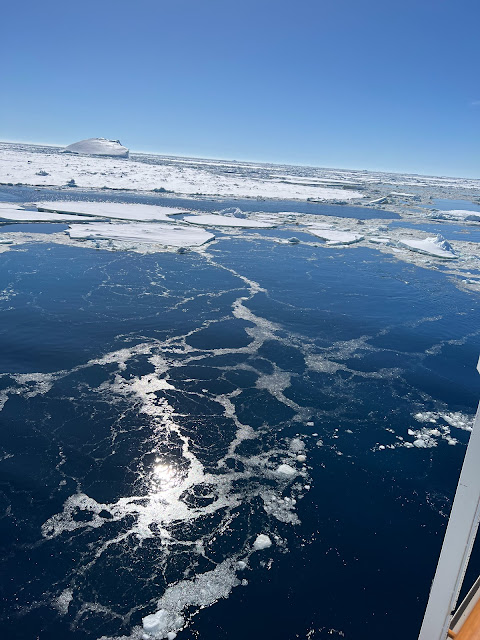 |
| What an amazing scene! |
 |
| This is grease ice I think - new sea ice forming |
 |
| A snapshot from the lift of 'Oscillations' playing on the atrium wall (lift well) |
The excellent virtual reality artwork which plays around the ship and features in a 9m panel in the atrium/lift well could very well be ice!
Later in the day we had a couple of excellent lectures. One about pinnipeds (seals) and the other about ice which was perfectly timed. I don’t think I will ever get my head around Antarctica. It's an extremely complex place to study. As a result much of what we understand is inference rather than fact. Nevertheless I keep trying to understand and there are more lectures coming up - hooray!
The image below shows the ice shelves around Antarctica. I had no idea there were so many but it stands to reason. Almost 98% of Antarctica is blanketed in thick ice. As we know like water ice flows ever so slowly but flow it does and as a result icy shelves and tongue-like projections stretch out into the surrounding sea. The ice shelves play an important role in preserving the ice sheet that dominates Antarctica.




No comments:
Post a Comment